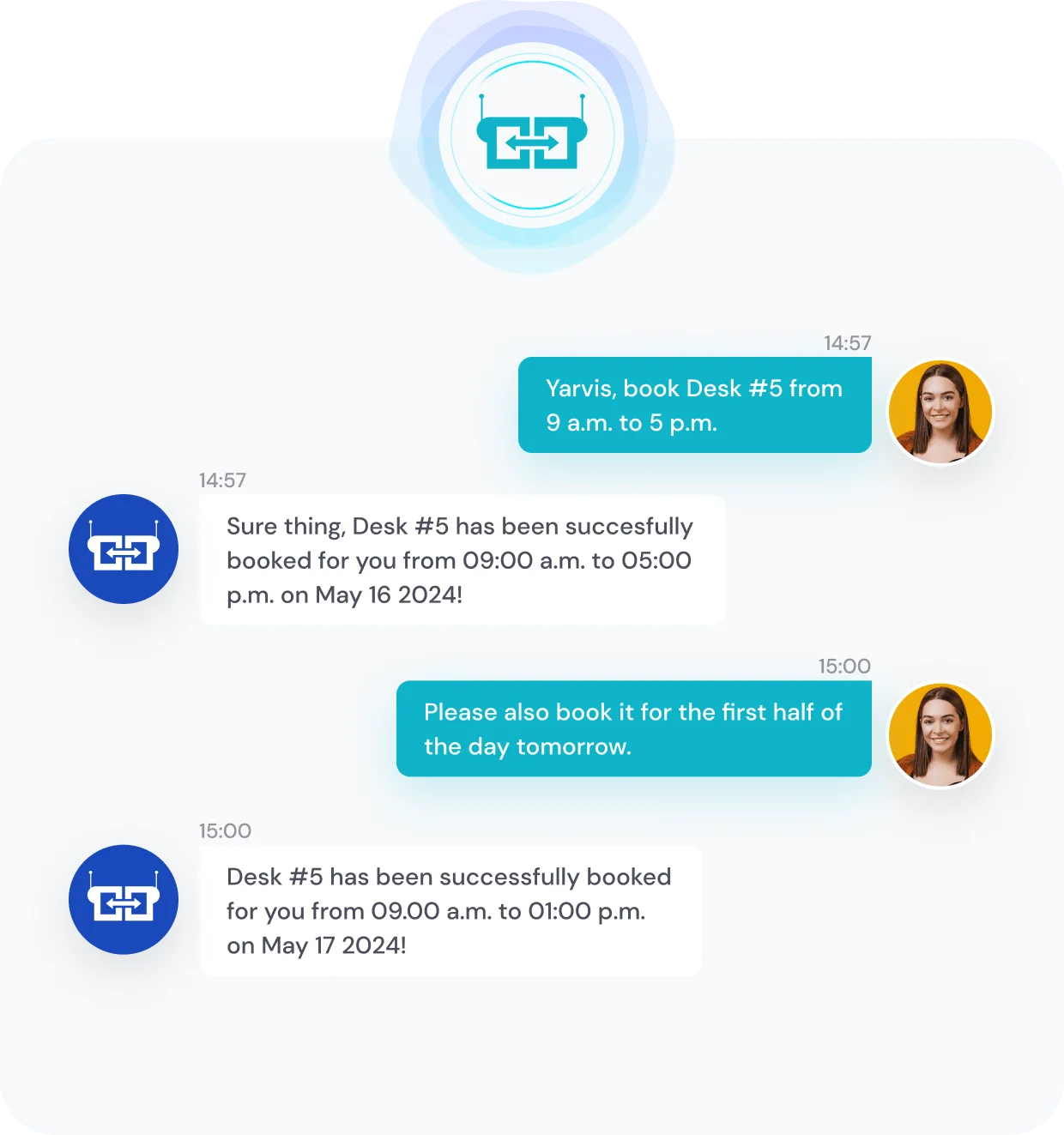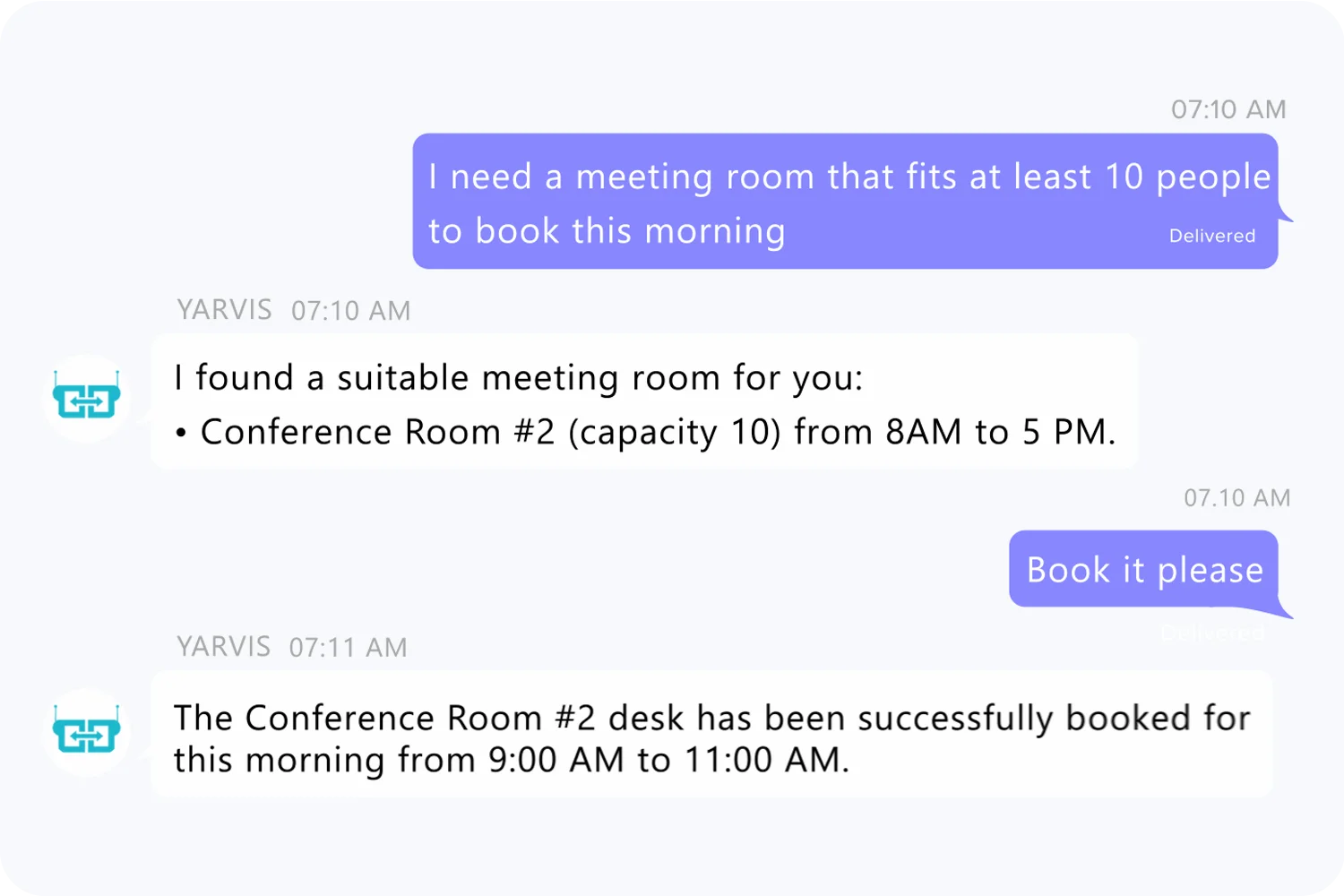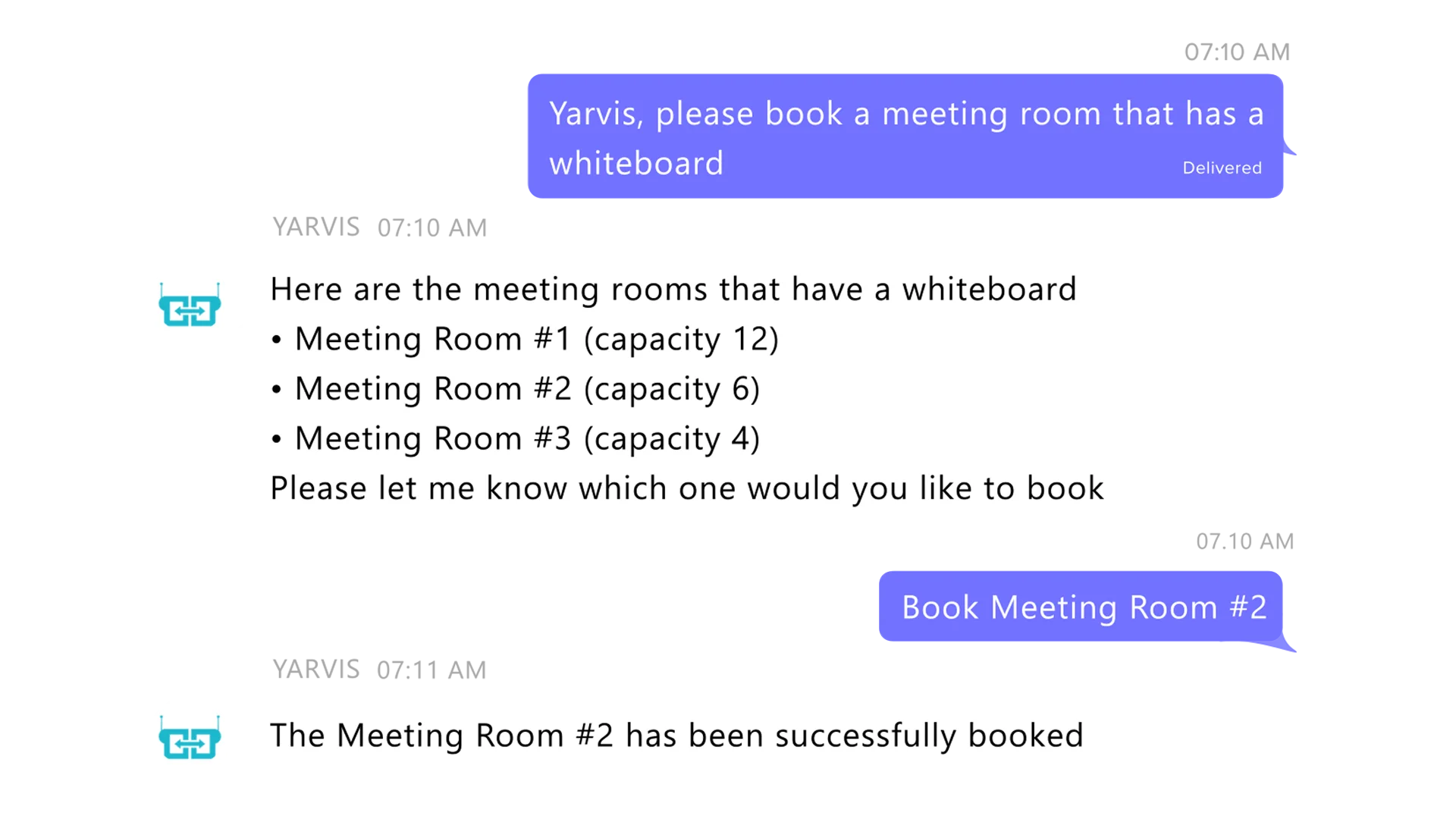Yarvis, the AI-powered assistant for smart workplaces
Experience the AI difference in managing your day around the office. Available on Microsoft Teams and Slack.
Meet Yarvis, the AI assistant for smart workplaces
Yarvis uses generative AI to simplify workplace management: multiple reservations, recurring bookings, spaces with the right amenities, and finding colleagues — all in one place.
AI chatbot for workspace management
The YAROOMS AI chatbot on Microsoft Teams and Slack — handles reservations and streamlines scheduling.
Natural language processing
Talk to Yarvis like a friend. No forms or complex interfaces — just natural conversation.
Smart recommendations
Learns your preferences and suggests workspaces, meeting rooms, and booking times that fit.
Complete complex workplace tasks in seconds
Instead of spending time researching, let Yarvis handle it in seconds. It will quickly complete even the most complex workspace booking requests, making your workday more efficient.
Multi-desk bookings
“Book 6 desks in the New York office for the marketing team every 2nd Wednesday starting today.”
Smart room search
“Find a meeting room for 10 people that's available Monday from 8 to 10 am with video conferencing.”
Batch cancellations
“Cancel my Desk #2 reservations for Tuesday and Thursday with a single request.”
Cross-location parking
“Find and reserve an electric car parking spot today from 8 to 11 am at HQ and from 2 to 7 pm at the local office.”

Upgrade employee experiences with AI
Artificial Intelligence opens up many avenues for organizations to create better employee experiences. By leveraging AI technology and AI virtual assistants in workspace management, you can build a more organized, productive, and time-saving work environment.
Optimized booking process
Yarvis optimizes the booking process for hot desks, meeting rooms, parking lots, and other office spaces.
Seamless coordination
Provides seamless coordination and eliminates scheduling conflicts automatically.
Smart recommendations
With smart recommendations, employees can quickly find the perfect spaces, saving time and avoiding manual reservations.

Keep pace with workplace innovation
Embracing AI technology is not just about staying current; it's about setting the pace for future success. 72% of executives believe AI will become the most significant business advantage in the future.
Free up valuable time
Let Yarvis handle your daily booking tasks so your team can focus on high-impact activities.
Faster, smarter work
Ensure workspace schedules are spot on for faster, smarter, and more efficient work.
Competitive advantage
Raise the bar for performance and competitiveness with AI-powered workplace management.

Key benefits of AI workplace assistants
Enterprise-grade security
Your data is protected with industry-leading certifications


AI workplace assistant: FAQ
Answering the most popular questions about AI assistants in the workplace.
Ready to see the big picture?
Explore how a modern AI assistant can simplify your day-to-day interactions with the workplace.
Related Products
Desk Booking
A top-rated desk management and booking solution that simplifies workspace reservations and brings …
Meeting Room Booking
A powerful yet easy-to-use meeting room booking system that simplifies scheduling and ensures no …
Hybrid Workplace
Seamlessly manage people and spaces in a flexible work environment with modern and user-friendly …
Become a partner
Join our growing network of partners worldwide
Application received!
We'll review your details and get back to you soon.
We use cookies to analyze traffic and improve your experience.
Cookie preferences
Required for the site to function
Help us understand how visitors use the site
Used to deliver relevant ads